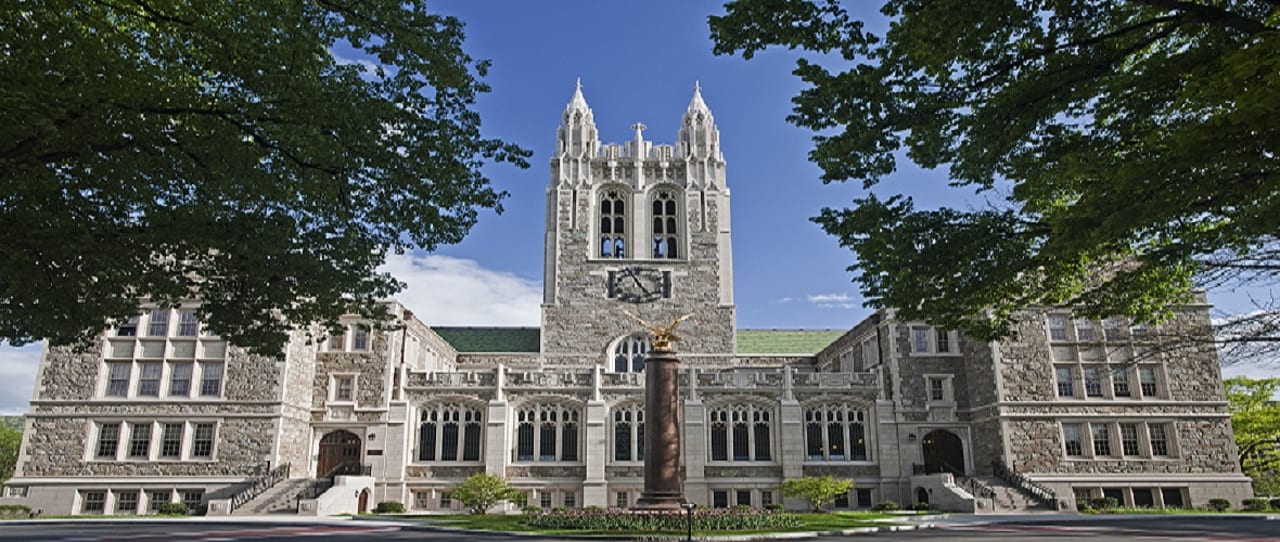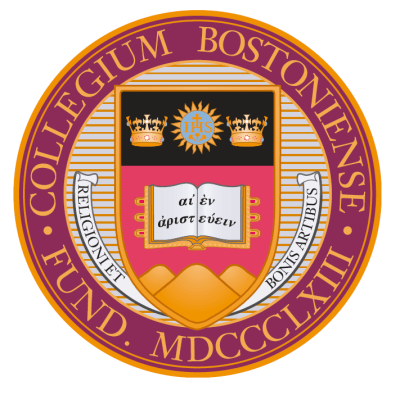
Ph.D. in Political Science
Boston College

Key Information
Campus location
Boston, USA
Languages
English
Study format
On-Campus
Duration
5 years
Pace
Full time
Tuition fees
Request info
Application deadline
Request info
Earliest start date
Request info
* all doctoral students receive a full tuition scholarship
Scholarships
Explore scholarship opportunities to help fund your studies
Introduction
Welcome to the Department of Political Science at Boston College
We are an unusual department, a department that has resisted the trend of pushing political science research away from questions that are relevant to citizens and political actors. Though we are particularly strong in the humanistic and qualitative approaches to politics, we celebrate methodological diversity. Twenty-six full-time faculty members (both senior and junior) teach in the department. We are also fortunate to have colleagues in a variety of other research and practice positions. This results in a considerable range in subject matter and academic approach. What unites our nationally renowned faculty is the recognition of the primacy of political problems and the conviction that these problems should determine the methodology that is appropriate in each case.
The master’s and doctoral programs are flexible as to fields of study and courses. In addition to the wide range of courses offered within the department, students have the opportunity to take courses in other fields at Boston College as well as at the other institutions that make up the Boston Area Consortium. Students are invited to welcome to the department of political science at Boston College to study any of the four traditional fields of political science: American Politics, Comparative Politics, International Politics, and Political Theory.
The small size of the program—about five to six students are admitted to the doctoral program each year—allows for personal attention and close contact with the faculty. Informal colloquia and more formal presentations supplement the regular order of scholarly exchange; advanced students have an opportunity to teach under faculty supervision. While our primary focus is on the education of our students, we pay a great deal of attention to their professional development, preparing them for the academic and non-academic job markets. Most of our students are given the opportunity to teach their own classes, and all receive advice and instruction on publishing their work.
Many of the graduate courses are seminars in which a considerable amount of responsibility is placed upon the student to analyze readings, prepare written and oral presentations, and guide class discussions. These are experiences we encourage generally in our courses, but the seminar, with 15 or so students, is ideally suited to this purpose. The classes are small, which fosters not only conversation but also close associations among students and faculty. The atmosphere is informal and collegial: both graduate students and faculty display an unusual blend of practical and philosophical concerns within a tradition of friendly but serious debate and scholarly exchange.
Curriculum
Graduate Program
Introduction
The Political Science Department offers a distinctive program which, in keeping with the tradition of Boston College, concentrates on significant questions, practical and theoretical. The master's and doctoral programs are flexible as to fields and courses, and they allow students to study in other departments and at other universities around Boston.
The small size of the program—approximately five to six students are admitted to the doctoral program each year—allows for personal attention and close contact with the faculty. Informal colloquia and more formal presentations supplement the regular order of scholarly exchange, and advanced students have an opportunity to teach under faculty supervision.
There are four traditional fields of Political Science: American Politics, Comparative Politics, International Relations, and Political Theory.
Twenty-three full-time professors—both junior and senior faculty—teach in the department. This results in a wide diversity of subject matter and of an academic approach.
Many of the graduate courses are seminars in which a considerable amount of responsibility is placed upon the student to analyze readings, prepare written and oral presentations to the class, and guide discussions. These are experiences we encourage generally in our courses, but the seminar, with 15 or fewer students, is ideally suited to this purpose. The classes are small, which fosters not only conversation but close associations among students and faculty. The atmosphere is informal and collegial. As an academic community, both graduate students and faculty display an unusual blend of practical and philosophical concerns within a tradition of friendly but serious debate and scholarly exchange.
Doctoral Program
Overview
Fourteen courses (42-43 credits) are required for students entering the program with no previous graduate work or a master's degree. Students choose three courses per semester. Of the 14 courses, three may be in the independent study and two (not more than one per semester) in non-graduate courses. Generally, graduate students taking non-graduate courses are required to do additional work beyond the requirements.
Students entering the program with the master's degree will take at least ten courses (30 credits), two of which may be in the independent study and two at the undergraduate level. The precise number of courses required of master's degree holders will depend mainly on how well their previous work corresponds to our requirements.
Get Started
The department's course offerings are organized in four fields: Political Theory, American Politics, International Politics, and Comparative Politics. These fields are organized into sub-fields, as listed below. Students choose one field as their major area of concentration, along with one minor field. A major consists of eight courses within a particular field, with preparation in at least three sub-fields (four if the major field is Political Theory). A minor consists of four courses. Students are required to take two additional courses; these may be distributed however the student chooses, and may even be taken in another department. These two courses could also be used toward an optional second minor, which consists of only two courses.
In both the major and minor fields, considerable discretion will be left to students as to the choice of courses, but students may be held accountable on comprehensive exams for a core body of knowledge in the field as well as for their own individual coursework.
American Politics
- National Political Institutions
- Parties and Elections; Interest Groups; Social Movements
- Political Economy, Public Policy and Administration
- American Foreign Policy
- Constitutional Law
- American Political Thought
- State and Urban Politics
International Politics
- The International System
- International Political Economy
- Comparative Foreign Policy
Political Theory
- Ancient and Medieval Theory
- Early Modern Theory: Machiavelli to Montesquieu
- Late Modern Theory: Rousseau to Nietzsche
- Empirical and Contemporary Theory
- American Political Thought
Comparative Politics
- Students may choose to specialize in a particular region or to focus on a thematic approach. They are expected, however, to demonstrate some substantial competence in both approaches to Comparative Politics.
Program Outcome
Learning Outcomes
Upon completion of the Ph.D. program, our students are expected to:
- demonstrate in-depth knowledge of two major subfields of political science
- teach effective courses in two subfields of political science
- conduct the original scholarly investigation in one or more subfields of political science
- publish the findings of their own research and secure academic or other professional positions
- have a good understanding of proper professional ethics in political science
Scholarships and Funding
English Language Requirements
Certify your English proficiency with the Duolingo English Test! The DET is a convenient, fast, and affordable online English test accepted by over 4,000 universities (like this one) around the world.